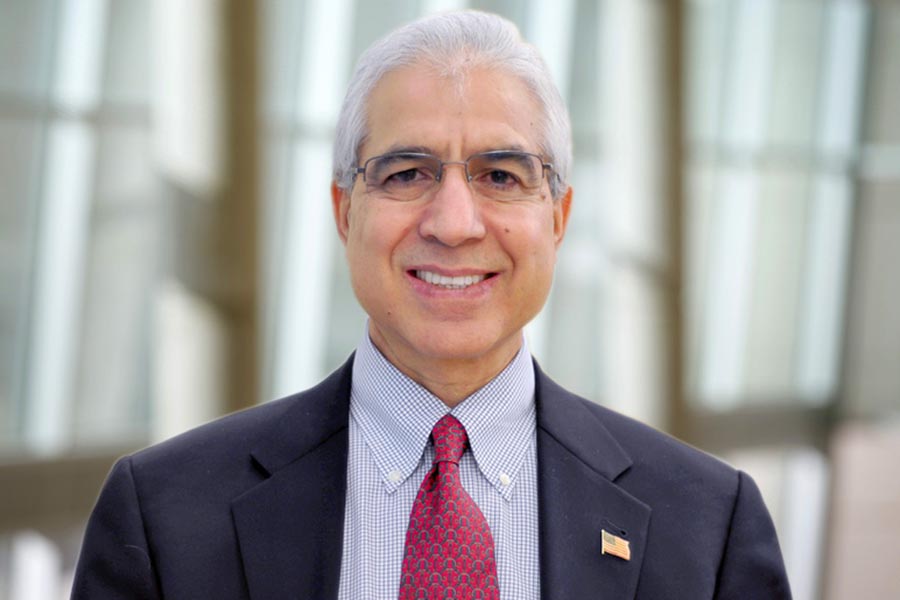Hamid Band, MD, PhD
Elizabeth Bruce Professor of Cancer Research
Director of the Center for Breast Cancer Research
Professor, UNMC Eppley Institute for Research in Cancer and Allied Diseases
Research focus: Molecular Control of Tyrosine Kinase Signaling: Cell Biology and translation

Dr. Band also holds courtesy appointments in the UNMC departments of Biochemistry and Molecular Biology; Genetics, Cell Biology and Anatomy; and Pathology and Microbiology.
Research Interests
Our laboratory focuses on two major topics, both geared towards understanding and potentially targeting the intracellular traffic of cell surface receptors coupled to activation of tyrosine kinase signaling:
- The CBL-family ubiquitin ligases, which provide an essential mechanism of negative regulation of receptor and non-receptor tyrosine kinases through ubiquitin-dependent proteasomal and lysosomal degradation.
- Members of the EHD family of membrane-activated ATPase proteins, which control subcellular traffic of cell surface receptors.
University of Nebraska Medical Center
986805 Nebraska Medical Center
Omaha, NE 68198-6805